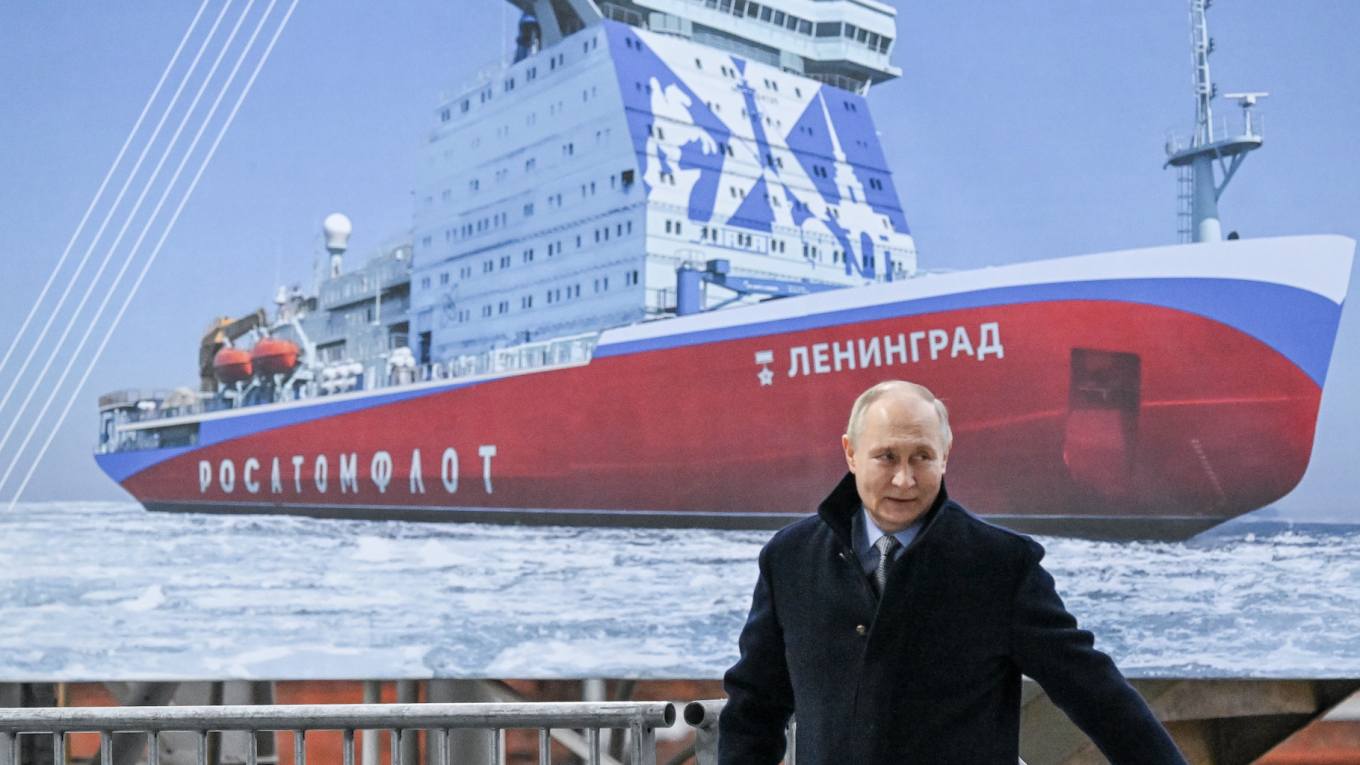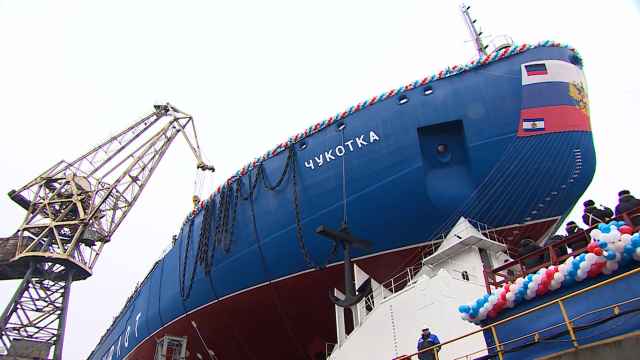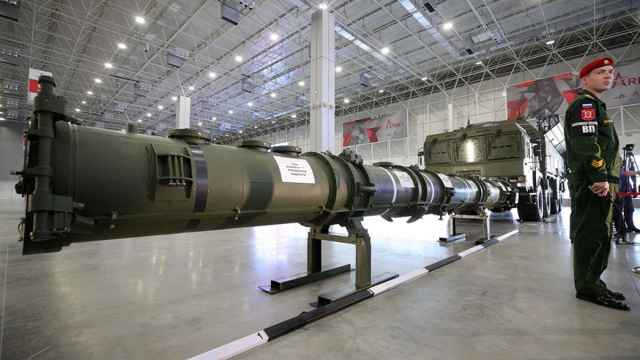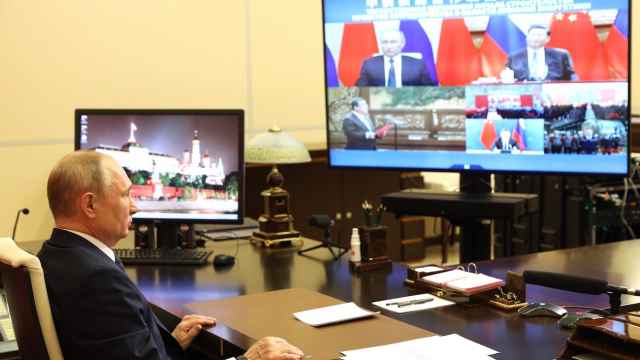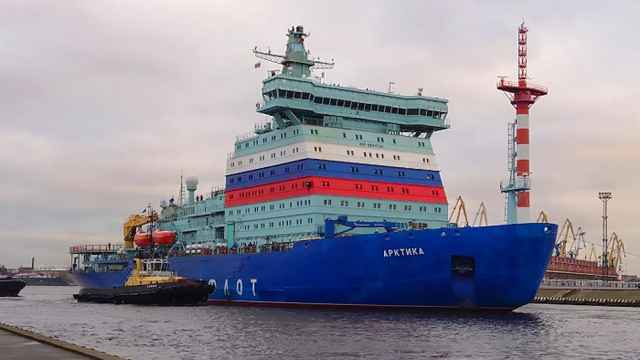Russian President Vladimir Putin on Friday gave the green light for a new nuclear-powered icebreaker, as Moscow seeks to step up commercial trade across its Arctic north.
Under Western sanctions for its Ukraine offensive, Russia is hoping to rely on the Northern Sea Route — a shipping lane that traverses the Arctic Ocean — to enable more trade with Asia by cutting distances and costs.
The new icebreaker, dubbed the Leningrad, will "take part in the most important exploration and research programs in the Arctic" as well as facilitate trade, Putin said in a speech at a shipyard in St. Petersburg.
Leningrad is the old name of the city, which is also Putin's hometown.
Russia has pivoted much of its trade — particularly crucial oil and gas sales — to Asia since it was hit with sanctions for sending troops into Ukraine.
The 170-meter ship, being built by the state nuclear agency Rosatom, is designed to carve through ice to allow trailing cargo ships easier passage through the frozen northern seas.
Russia is the only country in the world that builds and operates nuclear-powered icebreakers.
A Message from The Moscow Times:
Dear readers,
We are facing unprecedented challenges. Russia's Prosecutor General's Office has designated The Moscow Times as an "undesirable" organization, criminalizing our work and putting our staff at risk of prosecution. This follows our earlier unjust labeling as a "foreign agent."
These actions are direct attempts to silence independent journalism in Russia. The authorities claim our work "discredits the decisions of the Russian leadership." We see things differently: we strive to provide accurate, unbiased reporting on Russia.
We, the journalists of The Moscow Times, refuse to be silenced. But to continue our work, we need your help.
Your support, no matter how small, makes a world of difference. If you can, please support us monthly starting from just $2. It's quick to set up, and every contribution makes a significant impact.
By supporting The Moscow Times, you're defending open, independent journalism in the face of repression. Thank you for standing with us.
Remind me later.


